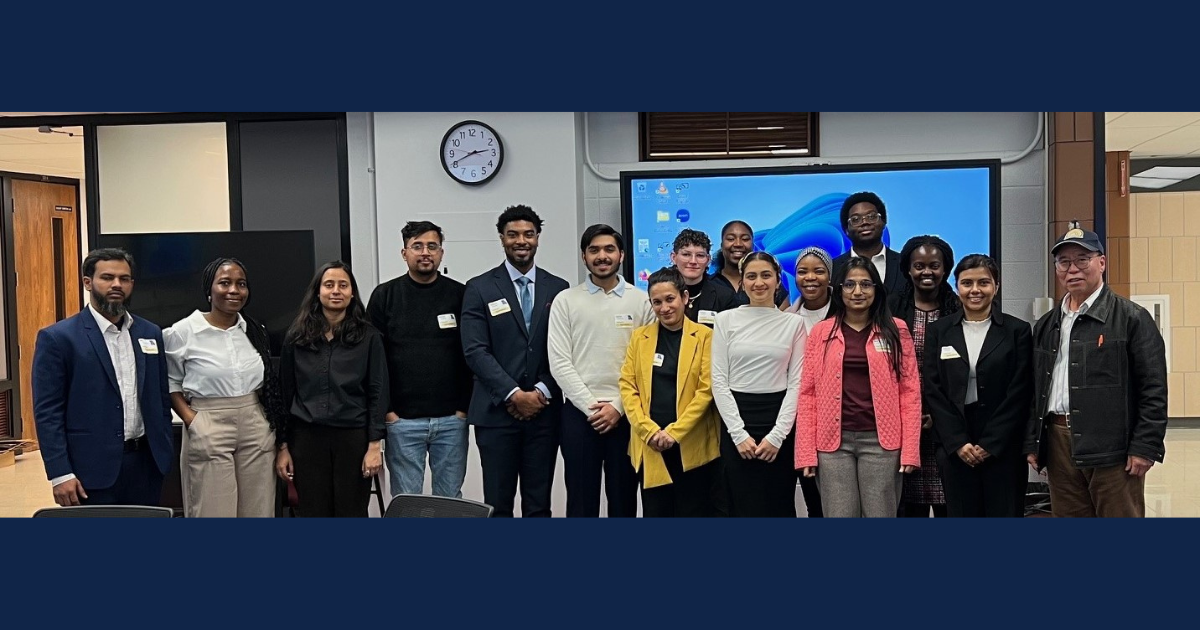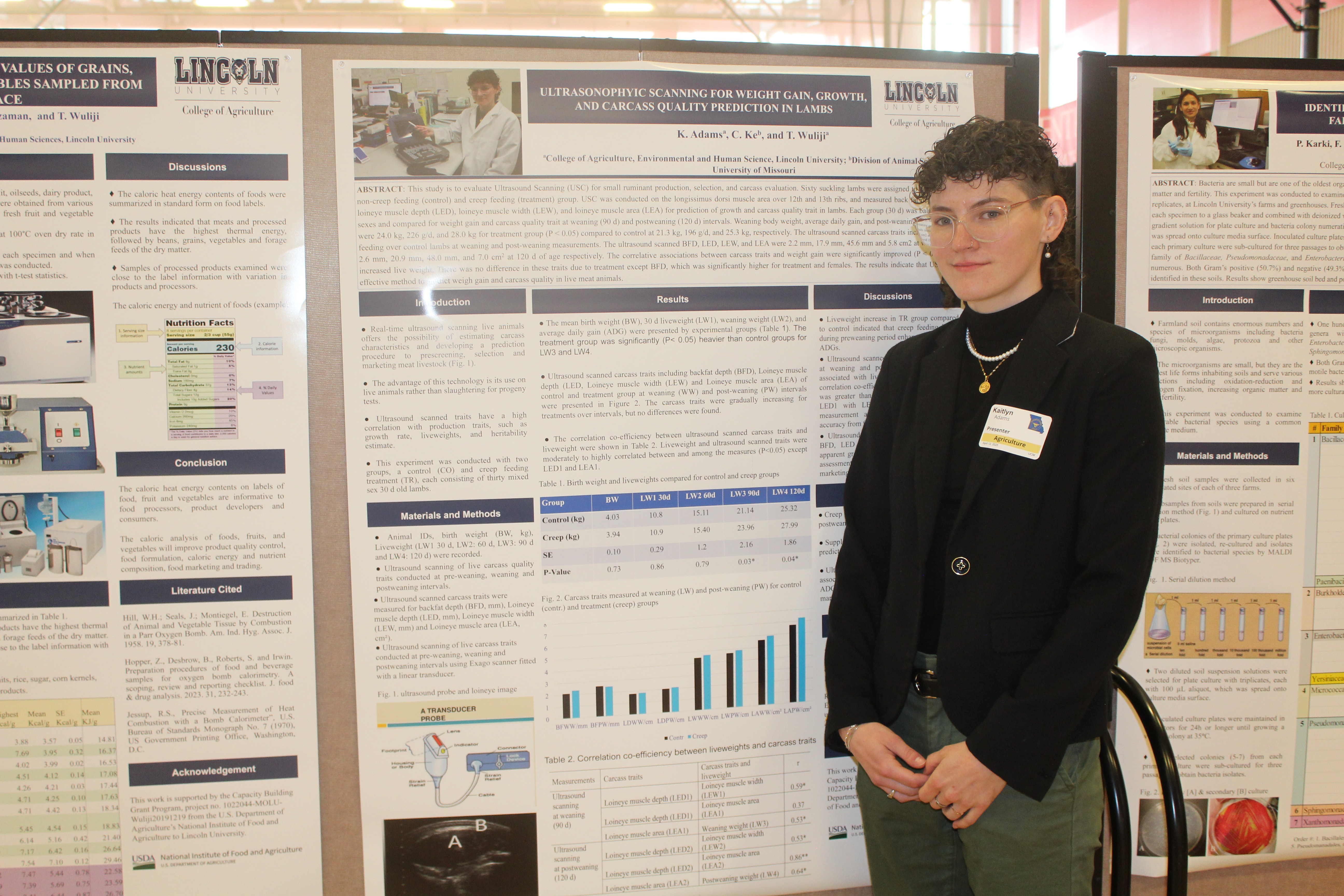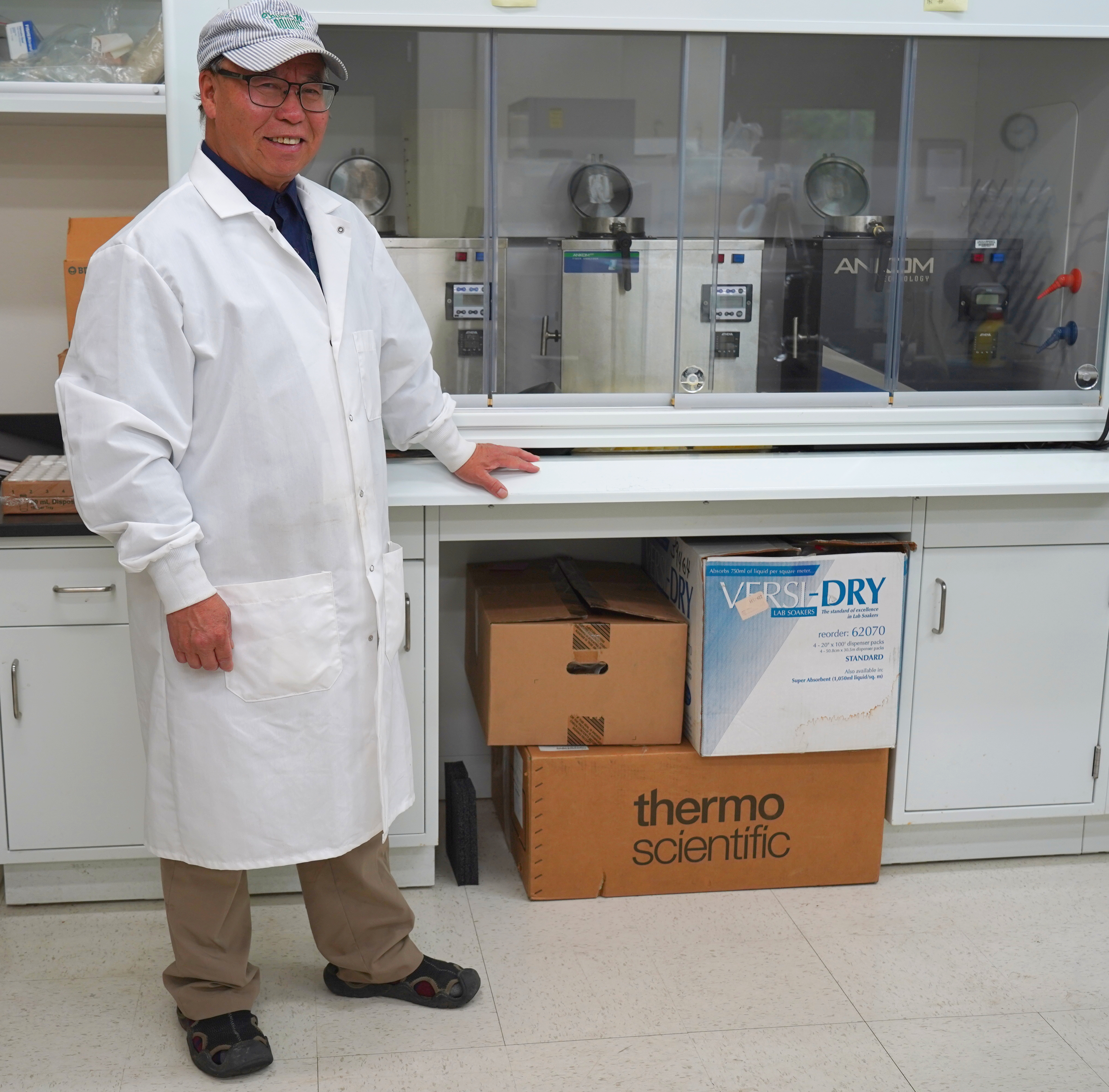Showcasing Graduate Research: Lincoln University at the 62nd Missouri Academy of Science Annual Meeting
Office of Communications and Marketing
Young Hall
820 Chestnut Street
Jefferson City, MO 65101
 Lincoln University graduate students and faculty gather for a group photo at the Missouri Academy of Science Annual Meeting.
Lincoln University graduate students and faculty gather for a group photo at the Missouri Academy of Science Annual Meeting.
Lincoln University of Missouri (LU) demonstrated its ongoing commitment to advancing research, education and student development in the agricultural sciences by participating in the 2025 Missouri Academy of Science Annual Meeting. The event, held April 11–12 at the University of Central Missouri in Warrensburg, brought together students from institutions across the state to showcase research through oral and poster sessions.
“The Missouri Academy of Science provides a great opportunity for students to share their research, gain experience presenting in a professional setting and connect with others in the scientific community,” says Dr. Tumen Wuliji, researcher and professor at LU’s College of Agriculture, Environmental and Human Sciences. “Attending a conference like this often leads to new ideas or opportunities. That kind of experience helps develop their thesis or plan for future studies.”
Twelve graduate students from Lincoln University participated in the agriculture section of the conference, delivering six oral presentations and eleven research posters. Their work explored a wide range of topics — including soil analysis, bacterial studies and food safety research. External funding sources such as the United States Department of Agriculture’s (USDA) Capacity Building Program, the National Science Foundation’s (NSF) National Needs Fellowship and the NextGen Workforce development initiative supported the work of these projects.
 Kaitlyn Adams, a graduate student at Lincoln University, stands beside her research poster at the Missouri Academy of Science Annual Meeting.
Kaitlyn Adams, a graduate student at Lincoln University, stands beside her research poster at the Missouri Academy of Science Annual Meeting.
For LU graduate student Kaitlyn Adams, the Missouri Academy of Science Annual Meeting marked a meaningful step in her development as a researcher. The opportunity to discuss her project helped her better understand how research is shared, questioned and refined in academic settings — insight she says will guide her future work.
“The Missouri Academy of Science improved my confidence because I had never presented my research anywhere before,” Adams says. “Once people began approaching me with questions, I felt more comfortable talking about my project. This experience gave me insight into how to share findings with other professionals.”
As a mentor, Wuliji sees participation in events like the Missouri Academy of Science Annual Meeting as an essential part of the graduate experience. He makes it a priority to ensure every student has the chance to share their work publicly.
 Dr. Tumen Wuliji is pictured in one of Lincoln University’s labs, where he conducts research and mentors graduate students in animal and agricultural sciences.
Dr. Tumen Wuliji is pictured in one of Lincoln University’s labs, where he conducts research and mentors graduate students in animal and agricultural sciences.
“I try to make sure each of my graduate students presents at least once or twice before they graduate,” Wuliji says. “It’s important for them to practice and interact with others. That kind of experience helps develop their thesis and prepare for further studies.”
Lincoln University’s continued involvement in the Missouri Academy of Science Annual Meeting underscores its commitment to learning and academic excellence. By encouraging students to present their research, LU prepares students to lead and innovate beyond the classroom. These experiences not only strengthen students’ academic and professional skills but also build confidence in their ability to contribute to statewide and global challenges. As a historically Black 1890 land-grant institution, LU remains dedicated to expanding access to research opportunities and empowering the next generation of scientific leaders
The Missouri Academy of Science is a statewide organization dedicated to advancing scientific research, education and collaboration. Its annual meeting brings together students, faculty and specialists from institutions across Missouri to present original research, exchange ideas and foster connections across a wide range of scientific disciplines.
